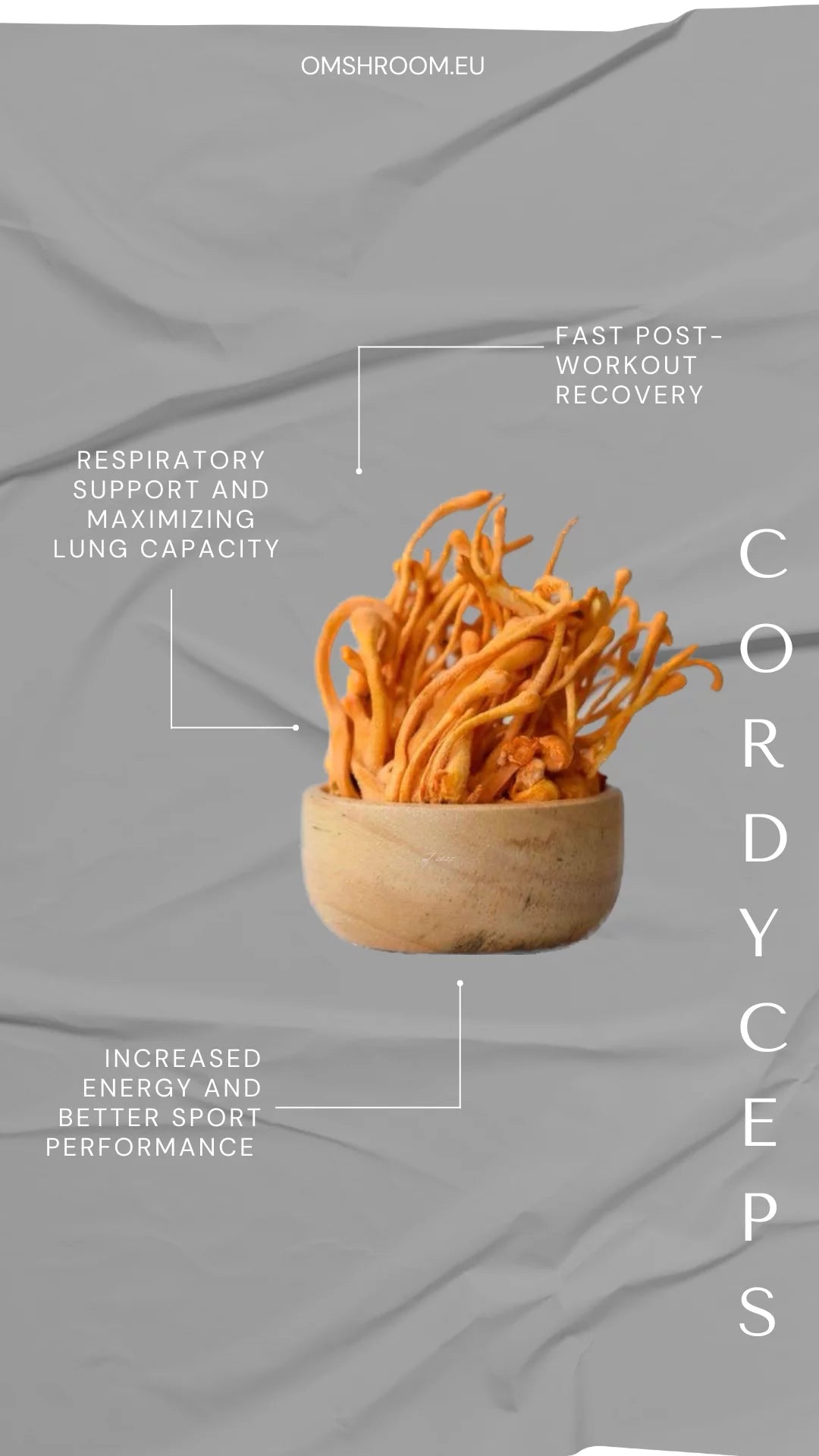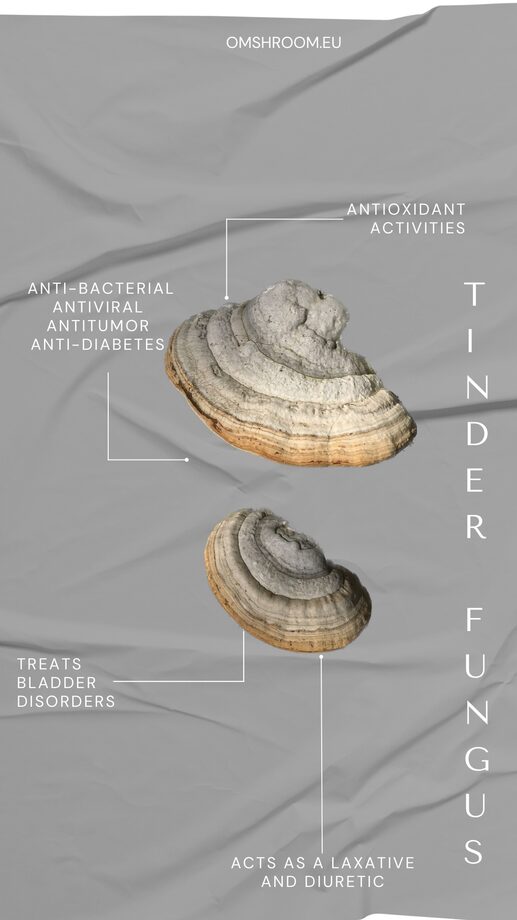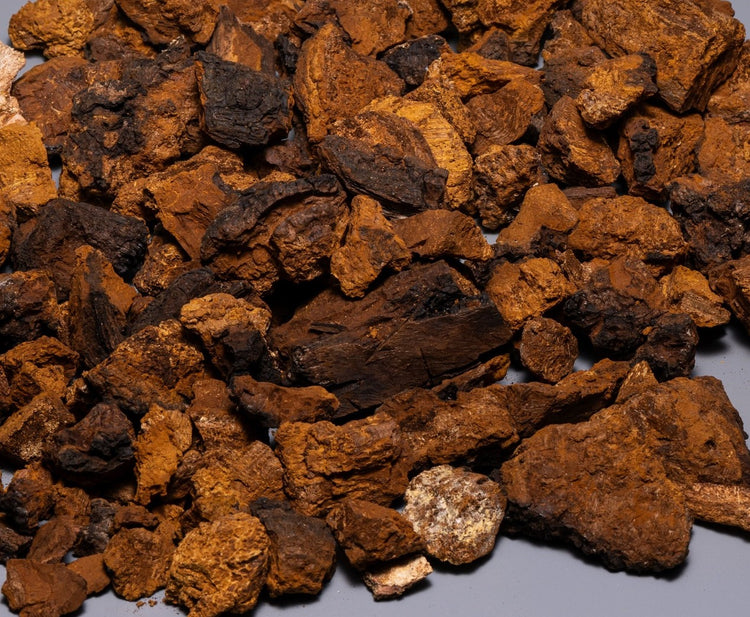Pilze werden seit Tausenden von Jahren in der traditionellen Praxis als Nahrungsergänzungsmittel verwendet. Sie sind für ihre bioaktiven Verbindungen bekannt, darunter Polysaccharide, Beta-Glucane, Terpenoide und Antioxidantien, die zu ihren potenziellen gesundheitlichen Vorteilen beitragen.
Lernen Sie unseren Leitfaden zu einigen funktionalen om.shrooms kennen:
1
geistige und emotionale Heilung
Laut einer Zusammenfassung aus dem Jahr 2020 im Journal of Molecular Science könnte der Löwenmähne- Pilz eine mögliche alternative Behandlungsmethode für Depressionen sein. Die Zusammenfassung hebt drei Möglichkeiten hervor, wie der Löwenmähne-Pilz Depressionssymptome lindern kann:
- Hilft , die Anwesenheit ausreichender Neurotransmitter sicherzustellen
- Verringerung des durch Stresssituationen verursachten Nervenwachstumsverlusts
- Minimierung von Entzündungen im Zusammenhang mit Depressionen
2
Kognitive Unterstützung: Nootropika
Wie könnte ein Nootropikum die Gehirnfunktion unterstützen? Es gibt mehrere Möglichkeiten: durch die Stimulierung der Reparatur und des Wachstums neuer Zellen des Nervensystems, durch die Bekämpfung von Entzündungen der Gehirnzellen, durch die Maximierung der Sauerstoffnutzung im Gehirn und im Nervengewebe sowie durch die Unterstützung der Stimmung und des Schlafs, was für die Gesundheit des Gehirns absolut wichtig ist.
Löwenmähe
Der Löwenmähnenpilz ist besonders für sein Potenzial zur Unterstützung der kognitiven Funktion bekannt. Es enthält Verbindungen, die das Nervenwachstum fördern und vor neurodegenerativen Erkrankungen schützen können. Löwenmähne wurde auf ihr Potenzial zur Verbesserung des Gedächtnisses, der Konzentration und der allgemeinen Gehirngesundheit untersucht.
Cordyceps militaris
Cordyceps enthält Antioxidantien, die dabei helfen, die Zellen vor oxidativem Stress durch freie Radikale zu schützen. Oxidativer Stress kann zum kognitiven Verfall und zu neurodegenerativen Erkrankungen beitragen. Durch das Abfangen freier Radikale kann Cordyceps eineneuroprotektive Wirkunghaben und die Gesundheit des Gehirns unterstützen.
Chaga
Chaga enthält bioaktive Verbindungen mitentzündungshemmenden Eigenschaften. Durch die Reduzierung von Entzündungen kann Chaga dazu beitragen, ein günstigeres Umfeld für eine optimale kognitive Funktion zu schaffen.
3
Unterstützung des Immunsystems
Viele funktionelle Pilzpräparate wie Reishi, Chaga, Coriander und Shiitake sollen die Immunfunktion stärken. Sie enthalten Polysaccharide und Beta-Glucane, die das Immunsystem stimulieren undseine Reaktion auf Krankheitserreger verbessern können
Chaga-Pilze sind reich an Antioxidantien(die höchste ORAC-Bewertung im Vergleich zu allen anderen Lebensmitteln)und Polysacchariden, die möglicherweise die Immunantwort modulieren können. Es wird angenommen, dass sie die Produktion von Zytokinen fördern, die an der Immunregulierung beteiligt sind, und das Gleichgewicht des Immunsystems unterstützen.
4
Körperentgiftung

Der Cordyceps-Pilz wird in der traditionellen Medizin seit langem zurVerbesserung des Energieniveaus und der körperlichen Leistungsfähigkeit eingesetzt.Es wird angenommen, dass es die Sauerstoffverwertung und die ATP-Produktion steigert, was Sportlern und Personen, die einen Energieschub suchen, zugute kommen kann.
Es wird auch angenommen, dass Cordyceps energetische Eigenschaften besitzt, die die Vitalität des Körpers unterstützen können, einschließlich derSteigerung der sexuellen Energieund Libido.
5
Body Detox

Unterstützung der Leber:Die Leber spielt eine entscheidende Rolle bei Entgiftungsprozessen im Körper. Chaga-Pilze und Zunderschwamm haben leberschützende Eigenschaften, unterstützen möglicherweise die Leberfunktion und helfen bei der Entgiftung.
Körperentgiftung: Eine antiparasitäreReinigung undEntgiftung des Körpers von niederen Pilzenkann mit Hilfe unseres Fliegenpilzes und Pantherina oder der antiparasitären Triade mit Fliegenpilz erreicht werden.
Antiparasitic cleanse and body detox from lower fungi can be reached with the help of amanita muscaria & pantherina.
Wie benutzt man es? bewusst!
Es ist anzumerken, dass Pilze zwar in der Forschung vielversprechende Ergebnisse gezeigt haben, sie sollten jedoch keinen professionellen Rat oder keine Behandlung ersetzen.
Die Einnahme einiger Funktionspilze sollte unter Aufsicht eines Arztes erfolgen, insbesondere wenn Sie unter bestimmten gesundheitlichen Beschwerden leiden oder Medikamente einnehmen.







